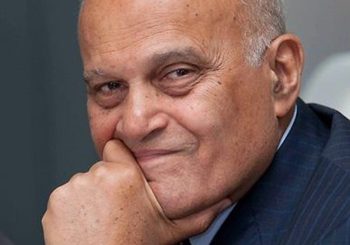Originally publish on nervana1.org
On February 9, The New York Times (NYT) published an editorial titled “All of Islam Isn’t the Enemy.” The article suggests that an order issued by the American President, Donald Trump, designating the Muslim Brotherhood as a terrorist organization, would “be seen by many Muslims as another attempt to vilify adherents of Islam.” The article then argues that the Muslim Brotherhood is not a terrorist group, and, based on this one analysis, it claims “there is no evidence that senior Brotherhood leaders ordered any violence or carried out any of the recent major terrorist attacks in Egypt.”
As a devout practicing Muslim, I find the editorial troubling, to say the least. It not only desperately defends a secretive group like the Muslim Brotherhood; it also asserts, without sound evidence, that the Brotherhood is a representative of adherents of Islam – an assertion that is fundamentally flawed. It is unfortunate that such a prestigious American publication as the New York Times has adopted this shallow and biased approach toward a very complex topic.
The parent Muslim Brotherhood group and all other movements, parties, and associations formally or informally linked to it, represent only themselves; they do not, by any stretch of the imagination, represent the billion Muslims around the globe. There are millions of pious Muslims who adhere peacefully and faithfully to the precepts of Islam, and who do not subscribe to political Islam. In fact, many consider the Brotherhood to be a secretive, cultish group that has hijacked their religion and ultimately paved the way for more radical groups such as Al-Qaeda and the Islamic State (ISIS).
It is baffling to see the New York Times, among others, defend a group that still uses two swords as part of its logo (on its Arabic sites), refuses to disown the intellectual godfather of radical Islam, Sayed Qutb and declines to fire any of its members who flirt with violence in Arabic posts, then condemn it in English ones.
The New York Times editorial is an unfortunate example of the current polarization in American politics that is using Islam as a weapon in their infighting. While the new Trump administration opts to brand all Muslims as potential terrorists, many liberal elite blur the difference between Islam and Islamism, and falsely portray groups such as the Muslim Brotherhood as representative of pious Muslims.
Both camps are wrong. Islam is much, much bigger than a group like the Brotherhood. The New York Times’ editorial board has clearly not been following the discourse on the Brotherhood closely, particularly during the past three years. The group has lost its popularity among millions of Muslims and is divided internally into subgroups fighting among themselves about vision and an approach for the future. The analysis cited by the New York Times was written by Nathan Brown and Michele Dunne of the Carnegie Endowment for International Peace. I respect both authors but I disagree with their analysis, which ironically acknowledges that “there are reports that some of the small groups that have carried out attacks on Egyptian police stations and infrastructure may have young Brotherhood members among them.” Even Tunisia’s Ennahda Party has opted to distance itself from Islamism and label itself as “a Muslim Democratic movement.”
America needs a new centrist approach to terrorism that abandons the current platitudinous attitudes toward Islam and Muslims – an approach that stops glamorizing Islamism and demonizing Muslims, a realistic approach that defines and rejects the ideology that sanctions violence. Such a complex task is indeed not easy; nonetheless, defending an opaque and mercurial group like the Muslim Brotherhood is certainly not the way to achieve this.
The New York Times in its defence of the Muslim Brotherhood, could be likened to a lawyer who bases his defense on improper legal procedures rather than the client’s actual guilt. Moreover, the Times has no right to equate the Brotherhood with Islam and use the faith of millions of non-Brotherhood Muslims as a pawn in the newspaper’s battle against the Trump administration.







Comments (0)